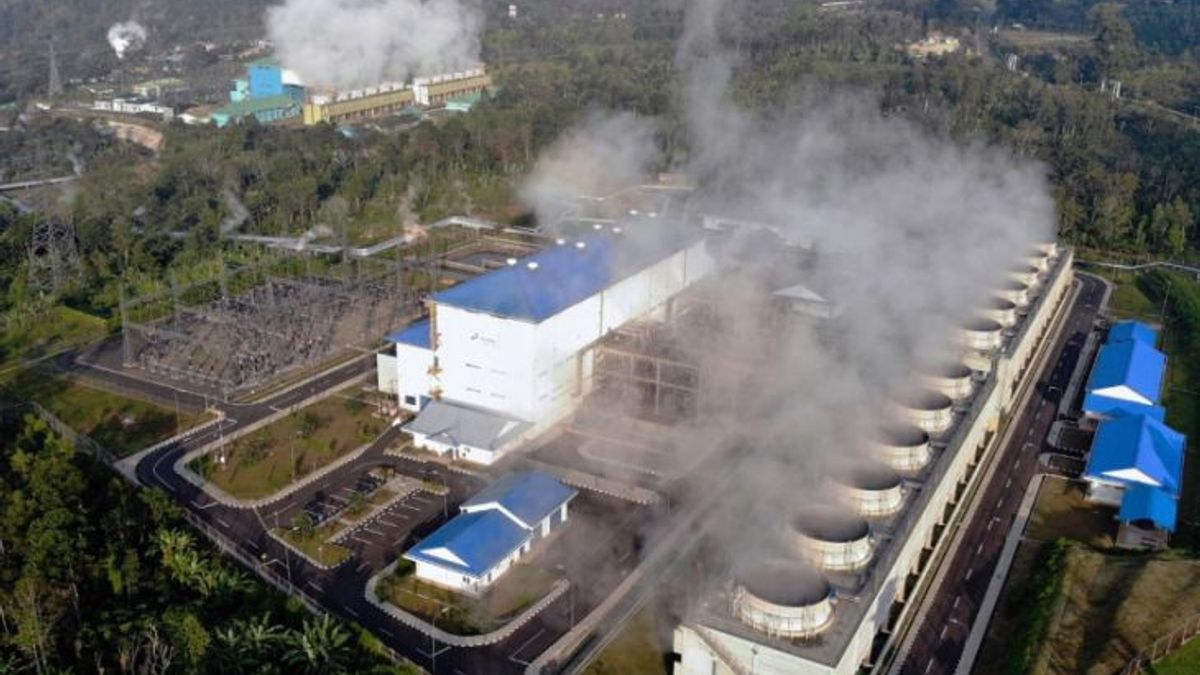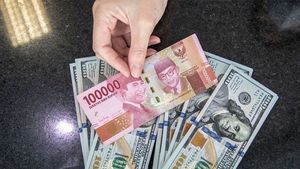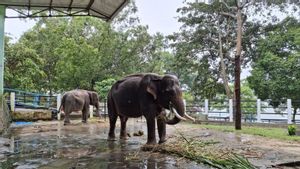JAKARTA - State-Owned Enterprises (BUMN) are expected to be the main driving force for geothermal development in Indonesia.
This is because Indonesia has one of the largest geothermal reserves in the world, so it must be utilized optimally in the midst of the energy transition from fossil to new and renewable energy.
Indonesia currently has geothermal reserves of 23.7 GW. Based on data from ThinkGeoEnergy 2022, the installed capacity of geothermal plants in the world reaches 15,854 MW.
Indonesia with a generating capacity of 2,276 MW is the country with the second largest generating capacity after the United States of 3,722 MW. Indonesia surpassed the Philippines with a capacity of 1,918 MW.
"Of course, we really hope that the existence of SOEs can accelerate geothermal development in the future," said Director of Geothermal, Directorate General of New Renewable Energy and Energy Conservation (EBTKE) of the Ministry of Energy and Mineral Resources (ESDM) Harris Yahya as quoted by Antara, Thursday 2 June.
Currently, there are three SOEs that are developing geothermal energy as an energy source, namely PT PLN (Persero) through PLN Gas and Geothermal, PT Pertamina (Persero) through PT Pertamina Geothermal Energy (PGE), and PT Geo Dipa Energi.
Harris assessed that PGE is a BUMN that has the biggest role in geothermal development.
"PGE's role can be very crucial in supporting the achievement of the government's targets," he said.
PGE currently manages 13 geothermal Working Areas (WK) in Sumatra, Java, Bali and North Sulawesi with a total power plant of 1,877 MW consisting of 672 MW which are operated independently and 1,205 MW are managed through joint operation contracts.
PGE's geothermal installed capacity contributes about 82 percent of the total geothermal installed capacity in Indonesia, with the potential for CO2 emission avoidance of around 9.7 million tons of CO2 per year.
"In the future, geothermal is indeed one of the important key factors in achieving net zero emissions, of course we hope that SOEs can take a big role there, which can also determine global targets," said Harris.
Senior Advisor to the Indonesian Geothermal Association (API) Abadi Poernomo added that SOEs are the main pioneers in geothermal development.
However, regulation remains a determining factor. For example, with some classic problems that often hit geothermal, especially regarding the price of electricity sold from developers.
Until now, geothermal rates are still considered inferior to coal-fired power plants, which are cheaper than geothermal.
"Geothermal cannot compete with PLTU (when the price of coal is below 100 US dollars per ton). The government/PLN wants the tariff to be the same as BPP (Cost of Production), where the geothermal economy does not enter," explained Abadi.
The former President Director of PGE admits that geothermal opportunities are very open to become the main based load generator, after the government plans to retire coal-fired power plants early. However, it all comes down to government regulations.
"I agree (geothermal is the momentum to replace PLTU), but it really depends on the regulations that will be issued," he said.
If the problem can be immediately resolved, continued Abadi, PGE as a pioneer in geothermal development can certainly play a more optimal role. Moreover, PGE is the oldest state geothermal company so that it becomes the main pioneer in national geothermal development.
Abadi said PGE was seen as the most massive and aggressive in geothermal development because it received strong support from Pertamina. "PGE's balance sheet is very positive, with a very high level of accreditation coupled with mother co Pertamina, it is very easy to find funding," he said.
The English, Chinese, Japanese, Arabic, and French versions are automatically generated by the AI. So there may still be inaccuracies in translating, please always see Indonesian as our main language. (system supported by DigitalSiber.id)













